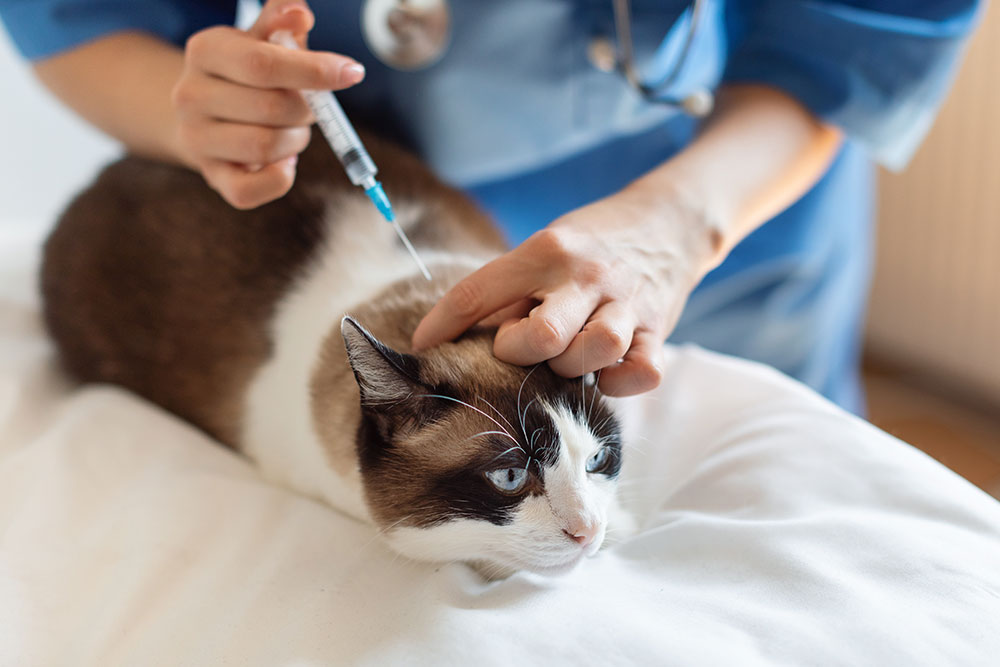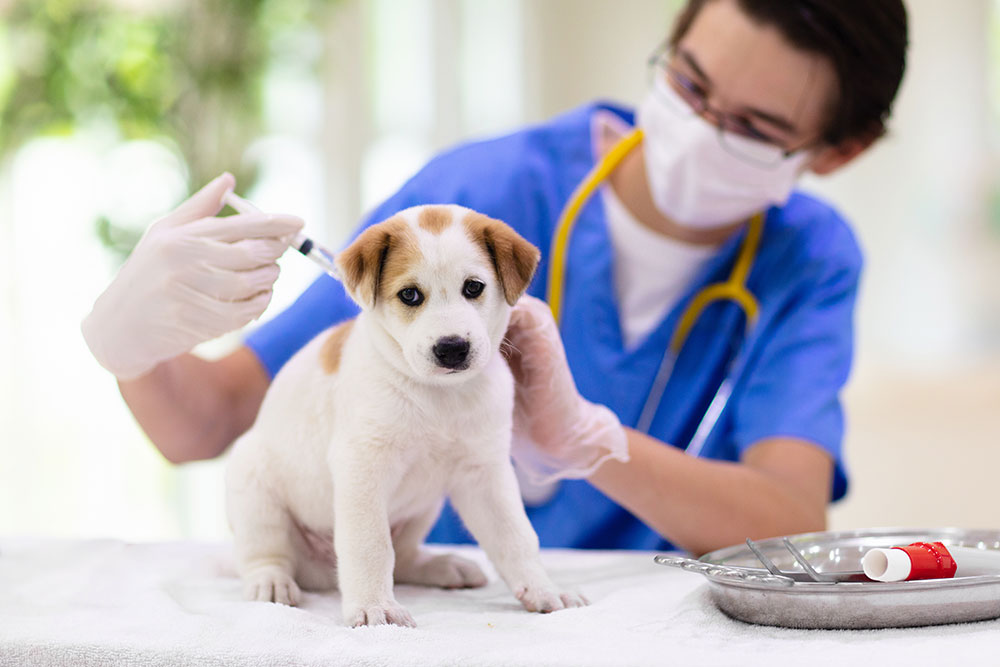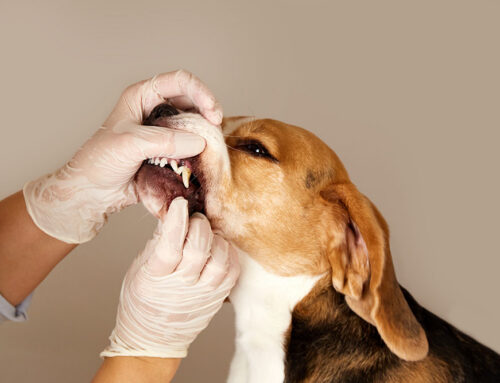The Essential Guide to Pet Vaccinations
Why Vaccinate? Protecting Your Pet’s Health for the Long Term
Vaccinations play a vital role in keeping pets healthy by protecting them from serious, preventable diseases. At Peak City Veterinary Hospital, we prioritize proactive care, and vaccines are a key component of our approach to preventative medicine.
Vaccines work by stimulating your pet’s immune system to recognize and fight disease-causing pathogens. By exposing the body to a harmless form of the virus or bacteria, vaccinations prepare the immune system to respond swiftly and effectively if your pet encounters the real disease.
Key Benefits of Vaccinating Your Pet:
- Prevention of deadly diseases like rabies, distemper, and parvovirus.
- Protection for pets and people—some diseases, like rabies, can spread to humans.
- Longer, healthier life by reducing the risk of serious illnesses.
- Lower veterinary costs—preventing disease is more affordable than treating it.
At Peak City Veterinary Hospital, our veterinary team customizes vaccination schedules based on your pet’s specific needs, lifestyle, and risk factors. For more details, visit the AVMA’s guide on pet vaccinations.
Core vs. Non-Core Vaccines: What’s the Difference?
Not all vaccines are required for every pet. Veterinary vaccinations are classified into core and non-core categories:
Core Vaccines (Essential for All Pets)
These vaccines protect against widespread, life-threatening diseases and are recommended for every dog and cat:
- Dogs: Rabies, distemper, parvovirus, adenovirus.
- Cats: Rabies, feline panleukopenia, calicivirus, herpesvirus.
Non-Core Vaccines (Based on Lifestyle & Location)
Non-core vaccines are recommended based on your pet’s environment and risk factors:
- Dogs: Bordetella (kennel cough), Lyme disease, leptospirosis, canine influenza.
- Cats: Feline leukemia (FeLV), Bordetella, chlamydia felis.
For a personalized vaccination plan, schedule an appointment with our expert team. For more detailed information on cat vaccinations, please read What Should I Know About My Cat’s Vaccinations?.
Customized Vaccination Plans for Every Life Stage
Every pet has unique needs, and their vaccination schedule should reflect their age, lifestyle, and health status. Our veterinarians develop tailored vaccine protocols to ensure maximum protection with minimal risks.
Recommended Vaccinations by Life Stage:
- Puppies & Kittens: Start their first vaccinations around 6–8 weeks of age. Boosters are given every 3–4 weeks until they are about 16 weeks old. These early vaccines protect against diseases like parvovirus and feline leukemia, which are especially dangerous in young animals.
- Adult Dogs & Cats: Booster shots are given annually or every three years, depending on the vaccine type. Adult pets need continued immunity against core diseases.
- Senior Pets: As pets age, their immune system changes. Some may need adjusted vaccine schedules to accommodate age-related health concerns. Our veterinarians assess each senior pet’s risk factors before recommending continued vaccinations.
For a complete breakdown of vaccination schedules, contact us to discuss the best plan for your pet.
Vaccine Safety & Efficacy: What Pet Parents Need to Know
We understand that pet owners may have concerns about vaccine safety. Rest assured, vaccines are extensively tested for safety and effectiveness before they are approved for use.
Are Vaccines Safe?
Vaccines undergo rigorous clinical trials and meet high safety standards set by veterinary health organizations. While minor side effects—such as mild soreness or slight lethargy—can occur, serious reactions are extremely rare.
Common Vaccine Myths—Debunked!
“Vaccines can overload my pet’s immune system.”
False! A pet’s immune system is designed to handle multiple vaccines safely.
“My indoor pet doesn’t need vaccinations.”
Even indoor pets can be exposed to viruses and bacteria through human contact or airborne particles.
If you have concerns about vaccinations, our veterinary team is happy to answer your questions and create a schedule that aligns with your pet’s needs.
North Carolina-Specific Vaccination Considerations
Certain diseases are more prevalent in North Carolina, making regional vaccinations especially important:
- Lyme Disease: Ticks carrying Lyme disease are common in wooded and grassy areas. Vaccination, paired with tick prevention, can protect your dog from serious complications.
- Leptospirosis: This bacterial infection is transmitted through contaminated water sources and wildlife. It can also spread to humans, making vaccination crucial for outdoor pets.
- Canine Influenza: Outbreaks of dog flu have been reported in the U.S., particularly in kennels and boarding facilities.
If your pet spends time hiking, swimming, or interacting with other animals, discuss these additional vaccines with our team. Schedule an appointment today.

FAQs: Your Vaccination Questions Answered
How often do pets need vaccines?
- Core vaccines are typically administered every 1–3 years, depending on the specific vaccine and your pet’s immune response.
- Non-core vaccines vary based on risk factors. Some require annual boosters, while others last longer.
What should I do after my pet’s vaccinations?
After a vaccination, monitor your pet for minor side effects, such as:
- Slight soreness at the injection site
- Temporary fatigue or mild fever
- Decreased appetite for a few hours
If your pet experiences severe reactions like swelling, vomiting, or difficulty breathing, seek immediate veterinary care. Contact us if you have concerns.
Investing in Your Pet’s Long-Term Health
Regular vaccinations are part of a well-rounded wellness plan that includes:
- Routine veterinary check-ups—Learn more
- Proper nutrition—A balanced diet supports immune health
- Dental care—Oral health impacts overall well-being—Explore pet dentistry
At Peak City Veterinary Hospital, we are committed to providing comprehensive preventative care to keep your pet happy and healthy.
Ready to Schedule Your Pet’s Vaccination?
Booking an appointment is easy! Request a visit today or contact our team for more information.
Your pet’s health starts with prevention—let’s protect them together!









Leave A Comment